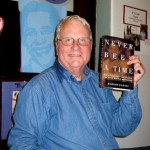Distorted memories make rational people act crazy
The way we remember the past determines how we understand the present and how we will act in the future. Consider this example: How do you remember 9/11? Many people remember 9/11 something like this: A group of people who are representative of ALL Muslims, who were part of a worldwide conspiratorial network of Muslims, hated that Americans have freedoms, so they began an endless violent onslaught against America in order to completely destroy America. For people who remember 9/11 like this, all of the following are “logical”: A) immensely wasteful Manichean American war-mongering worldwide, B) giving law enforcement the green light to deprive citizens of fundamental liberties, C) intense groupishness, leading to unabashed bigotry aimed at Muslims and other non-Christians and D) Doing everything possible (even at the expense of ignoring America’s decaying infrastructure) to attempt to protect Americans from violent Muslims, who could be lurking around every corner. [More . . . ]



